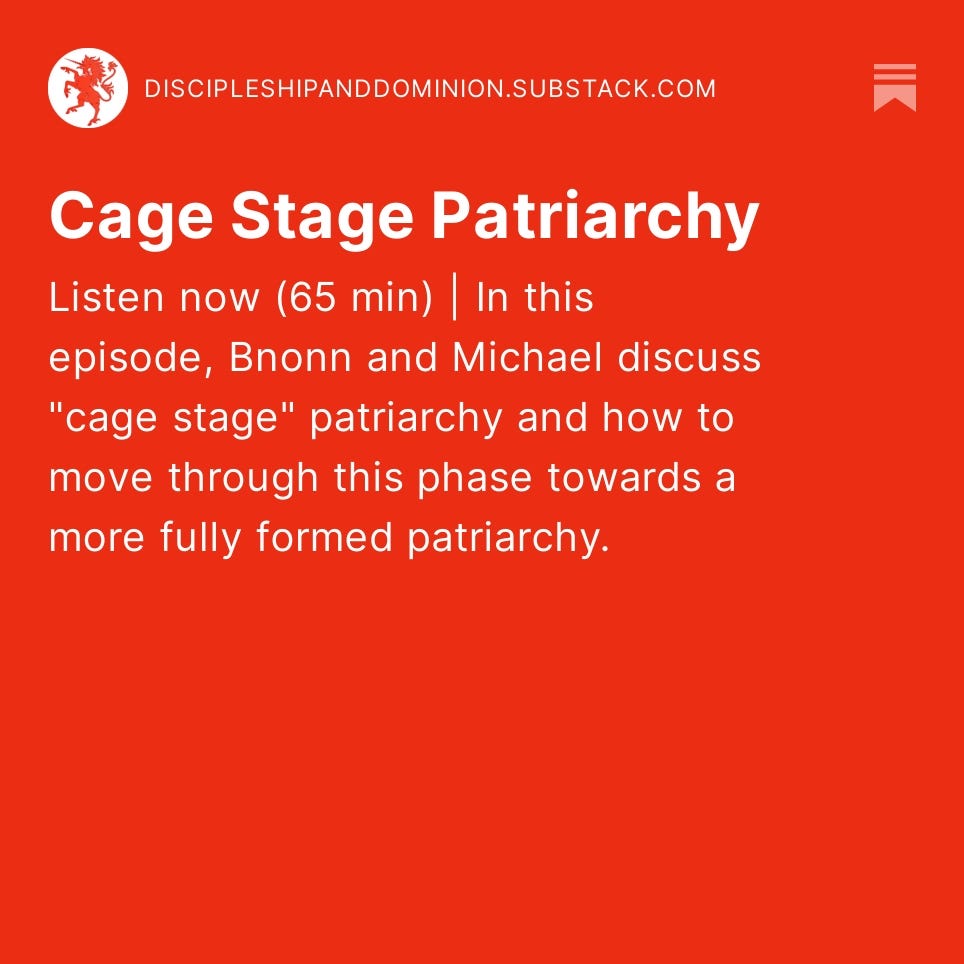In The Reformed Pastor, Richard Baxter describes unregenerate pastors:
They do but “walk in a vain show,” [Ps 39:6] and spend their lives like dreaming men, while busying their wits and tongues about an abundance of names and notions, and are strangers to God and the life of saints.
This idea of busying one’s wits and tongue with an abundance of names and notions seems a fitting description of internet-age Christianity.
It's the theology of the momentary.
It's the religion of the trending topic.
It's here one moment and then flutters over there the next.
It’s always shifting to the new big thing which is sure to be passé by month’s end.
It creates a passive mindset that is easily blown along by the winds of social media. A mindset that lacks the internal weight to keep it anchored to clear goals and responsibilities. A mindset that is easily inflamed by the excitement of the next flash in the pan.
In this way, we have become like the pagans in Athens:
Now all the Athenians and the strangers sojourning there spent their time in nothing else, but either to tell or to hear some new thing. (Acts 17:21)
This is an especially dangerous mindset when you’re engaged in a culture war. People with minds like magpies, continually distracted by the latest fad, make terrible soldiers. They are liabilities to their own side, and easily maneuvered by the enemy. They can be suckered into conflict because they lack self-discipline, self-awareness, and the ability to see more than one move ahead.
They are eager to dive into conflict. They don’t believe, or don’t want to believe, that most conflict is better avoided. They are like young men who go into dodgy neighborhoods or start something with guys at a bar, just to show they’re not afraid. But not going certain places that have nothing to do with achieving your goals—whether those places are forums or just topics of discussion—can save you from a world of hurt. And not engaging if you find yourself in those places is often the best strategy.
A savvy opponent knows that hot-headed, undisciplined fighters are a weakness. The enemy wants to draw you into a conflict that you can’t win.
Who wins a battle is often determined by who picks the battlefield. A smart opponent will bait you into taking a strategically bad position. Don't take the bait.
The Pharisees and Sadducees repeatedly tried to trick Jesus with questions and stupid theoretical nonsense. Note that Jesus rarely answered the questions on their terms. He would often ignore them. He would often redirect them.
Our Lord is wise. We should be like Him.
To use a close analogy, in martial arts, feints are common: your opponent will pretend to go for one target, intending to miss in order to provoke a response he knows he can exploit. Or he will put himself in a bad guard, to bait you into an attack that he knows will create an opening.
In German longsword, one of the major positions is even called alber—the “fool.”
The idea is to create and exploit an unforced error by presenting the illusion of an easy win.
In espionage, a common “soft” version of this is called a honey trap. Here the idea is to compromise the target before he even realizes he’s in a fight. For instance, an attractive covert agent is used to create a sexual relationship that will compromise him in some way. No doubt you can think of many spy movies where this was a major theme.
Unforced errors are almost always a case of “you are your own worst enemy.” They happen when you go off mission. All your enemy does is give you the opportunity, then closes in for the kill when you’ve compromised yourself.
There is a “hard” version of this which has become popular in the internet age.
We call it a crap trap.
The premise is simple: create a stinking bog of irresistible controversy that your opponent can’t help but wade into.
Not every crap trap is laid intentionally—in fact, we would say that probably, most are either naturally-occurring accidents, or created kind of intuitively, based on low cunning, rather than clearly-laid strategy.
But the effect is the same: anyone who wades into a crap trap gets a compromising stench all over him. At the same time, he wastes a lot of energy thrashing around. Energy that he can no longer spend hitting targets of actual value to the enemy.
You might ask yourself why anyone would voluntarily walk into a crap trap. But it’s not that complicated. There are a couple of ways to entice the right kind of person into one.
The first way is by staging the battlefield so the crap-trap looks like a critical piece of territory. If your opponent naively accepts your framing, he comes to believe that not only is the sewage bog critical to defend, but that it is actually the most solid ground that he could fight from.
A great example of this was the ESS controversy some years ago. A lot of people on the patriarchal side of the complementarian debate got suckered into defending a highly dubious view of God—the eternal subordination of the Son—because it was supposedly foundational to their doctrine of sexual distinctions.
It wasn’t. Gendered piety is easily defended from the creation order without any recourse to the nature of God.
The “stink” of ESS still clings to many of these guys today. Their previous defense of ESS is considered an easy way to discredit them. It doesn’t matter if this is right or wrong, fair or unfair—the fact is, it works, and you have to understand it if you want to be effective in battle.
The second way to entice someone into a crap trap is by simple provocation. A lot of foolish men will willingly wade into a sewage bog just because they want something to fight about. Many guys today have a martyr complex because they feel powerless and outnumbered. They are not cowards—they refuse to just go with the flow. But since they see little hope of actually winning, they are easily incited into foolish altercations. Fighting becomes a way of proving themselves, rather than a way of moving toward victory. So the more reckless, the better. Being an edgelord becomes a badge of honor.
This means they will willingly walk into a bloodbath or throw themselves on a grenade if the enemy simply presents one.
Men in a cage stage are often especially susceptible to this. Bnonn, during his own cage stage, was once snookered into a crap trap about domestic discipline.
We talk about the danger of cage stages, and how to work through them, here:
But in Current Year, the whole internet is essentially in a perpetuate cage stage, so crap traps are even easier to deploy. The battlefield is so polarized, and people are so numb to being called racists, sexists, x-phobes, etc, that they stop paying any attention to it, and get complacent about the ground they are being maneuvered to fight on. They get so used to being villified for fighting for legitimate territory, that they assume villification means that the fight is legitimate.
This creates an opportunity for a savvy enemy to lay the flak on thick around a crap trap instead of a legitimate target, and thus bait people into it.
It’s the equivalent of terrorists tricking us into bombing civilian targets.
Once it’s done, there’s no way to remove the stench. You can complain that optics shouldn’t matter. But they just do. Or you can prove that the civilians were actually terrorists. But most people won’t care. The work of de-legitimizing you is already done in the eyes of “normies.” And like it or not, normies are the people we are fighting for, and the people we need to bring along with us to victory. If we lose them, we might as well just start building monasteries in the hills instead of fighting where we are.
Right now there is a giant crap trap being run on on Christian nationalists, drawing our side into ever-more extreme positions (optically or actually), that there is negative utility or value in defending.
The enemy is overtly maneuvering our team into a sewage bog, and unfortunately for many, the answer is, "Hey, the enemy obviously thinks this bog is super important. Let’s show them how well we can swim in it. Just watch us go!”
One of the things that makes crap traps so effective is not just the long-term effect of discrediting those who waded in, nor even the short-term effect of sapping their energy on fruitless foundering. The way the bait works, it deludes people into thinking that taking the bog is a winning strategy. Therefore, they also assume the only people who would try to stop them would be the enemy. So warnings from those who see the trap actually cause division in the ranks. It turns the suckers against their clear-eyed allies, and it causes the clear-eyed allies to distrust and resent the suckers.
This makes crap traps a great tool for the enemy.
Pick big fights carefully. Avoid going off mission. Do not be your own worst enemy.
If you see some controversy starting to boil, you will be tempted to comment. You want to go where the action is. You don’t want to miss out.
But first ask yourself: “How is this related to my current responsibilities and goals?”
Maybe it is related. But don’t let other people decide that for you.
We are playing to win—and that means playing the long game. You need numbers, institutions, and money to effect actual change. There is a reason we are laser focused on church planting and localism. We are building what it takes to win.
Q&A: How should we accept praise or glory?
A reader asks:
Something I've struggled with my whole life is accepting praise or "glory". Being raised with the typical "give all glory to God" I've always felt deeply uncomfortable when I get praised for my work, feeling either that a) I didn't really do anything exceptional, or b) I need to find some way to redirect the glory to God. But I also hate the cheezy attempts to do this I see in Christian culture, i.e. the finger point to heaven, or the casual "thanks, but God gets the glory" response. I think I'm missing something in my theology of glory that is hampering my ability to accept praise and properly give glory to God.
Jesus promises a crown—a symbol of glory and honor—to everyone who overcomes. He intends for us to receive glory because he made us as his glory (cf. 1 Cor 11; Ezek 3).
When men glorify us, if our hearts are right before God, we will rejoice that we have reflected God's glory and been recognized for it. We do not think that we originated the glory, but we are grateful to express it. And we return that glory to God in worship (cf. Rev 4-5).
Instead of trying to deflect or deny that kind of recognition, it is better to accept and validate it. Try to keep it short and simple. “Thanks, brother. Glad to be helpful.” Or, “Thanks. That's encouraging.” Then, later on, give thanks to God privately.
New content this week:
Notable:
The cutest sign at New Zealand’s recent March for Life:
Presuppositionalism applied to trans ideology:
Worth watching:
Talk again next week,
Bnonn & Michael





